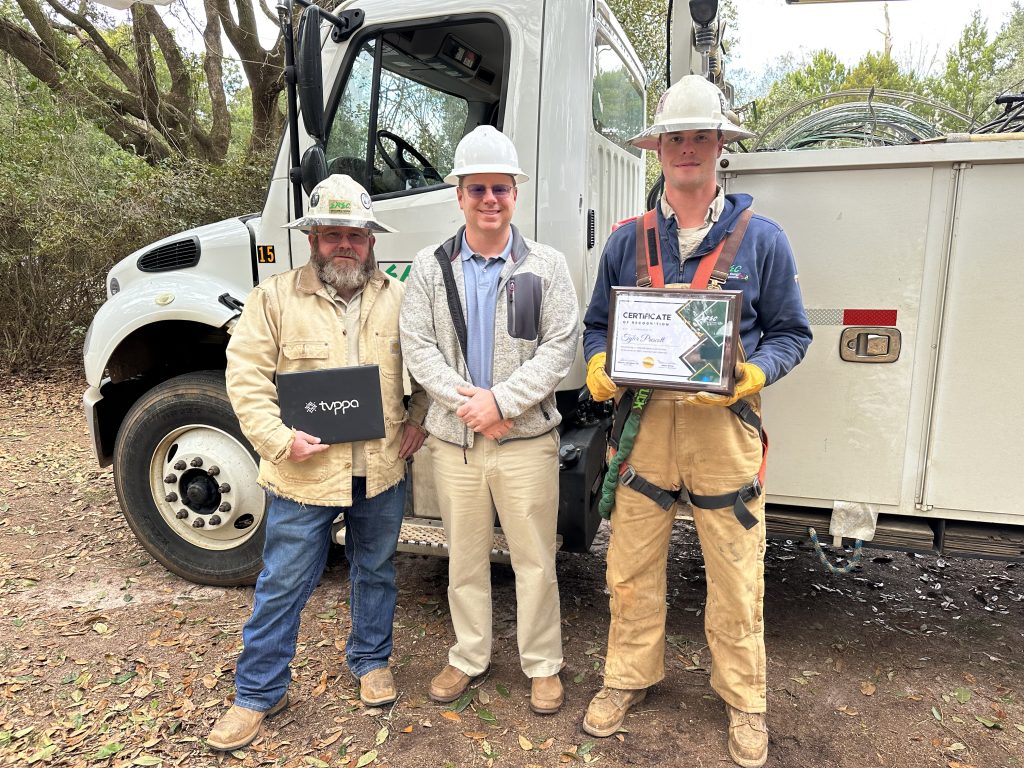EREC Lineworkers Commit to Career
EREC Lineworkers Commit to Career
(Jay, FL) Lineworkers often work non-traditional hours, outdoors in difficult conditions. While the job does not require a college degree, it does require technical skills, years of training and hands-on learning. Becoming a journeyman lineworker can take more than 7,000 hours of training because working with high-voltage equipment requires specialized skills, experience, and ongoing mental toughness. Shortcuts are not an option and there is no room for error in this line of work. Two members of the EREC team, Kyle Strickling and Tyler Prescott, have completed the rigorous Lineman Apprenticeship program held through the Tennessee Valley Public Power Association (TVPPA) and are now certified Journeyman Linemen. The program consists of correspondence units five labs, one workshop and one final exam.
“We are very proud of the hard work and time spent by these guys,” says Ryan Campbell, CEO of EREC. “Without the exceptional dedication and commitment of these hardworking men, we simply would not have the reliable electricity that we need for everyday life.”
About the program:
Apprentice Lineman training introduces the beginning apprentice to the basic math, electricity and alternating current fundamental principles that are the groundwork for understanding the “hows and whys” of this profession. Students learn the basic tools and equipment used in everyday operations, and applications include stringing and sagging wire; underground distribution systems; transmission and distribution line maintenance; transformer connections; meter applications; substation operations; and phasing and measuring voltage and current.
The five laboratory sessions plus the final exam enable students to apply the knowledge learned from the correspondence units. They learn basic knots and safe climbing techniques, as well as pole-top rescue, both climbing skills necessary for overhead line construction. Participants construct and frame lines using specifications, and learn grounding and preparation of stress cones for underground cable. Effective job briefing and basic troubleshooting steps for overhead and underground systems are demonstrated, as well as transformer banking, bucket truck pre-trip inspection, and bucket truck rescue.
##
About EREC:
Founded in 1939, The Escambia River Electric Cooperative brings affordable electric power to approximately 11,000 residents of northern Escambia County and Santa Rosa County, Florida. The company is a member-owned electric distribution cooperative headquartered in Jay, Florida, with another location in Walnut Hill. EREC’s mission is to provide dependable electric service at competitive rates while seeking ways to enhance the area’s quality of life through economic development projects, educating students about safety and the environment, and generously donating time, energy and resources for charities, schools and community events. Was
(L to R: Kyle Strickling, Ryan Campbell, Tyler Prescott) Ryan Campbell, CEO of EREC, presents certification to lineworkers Kyle and Tyler.


















